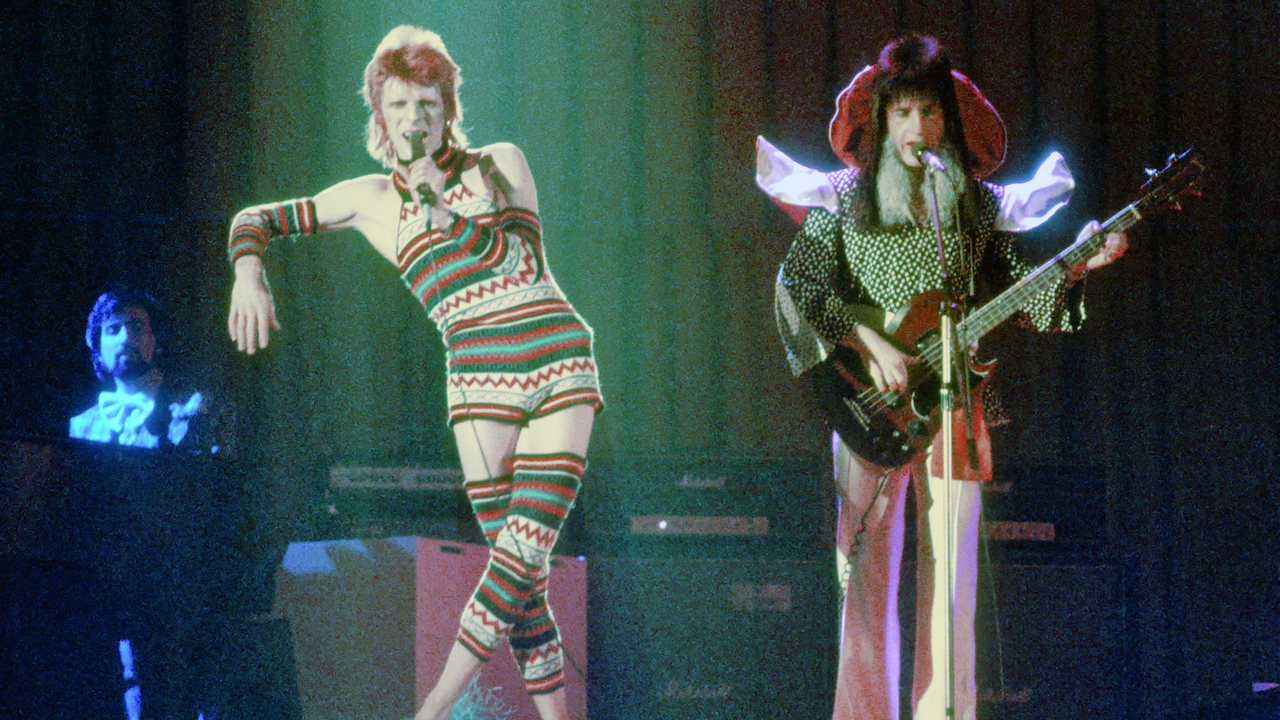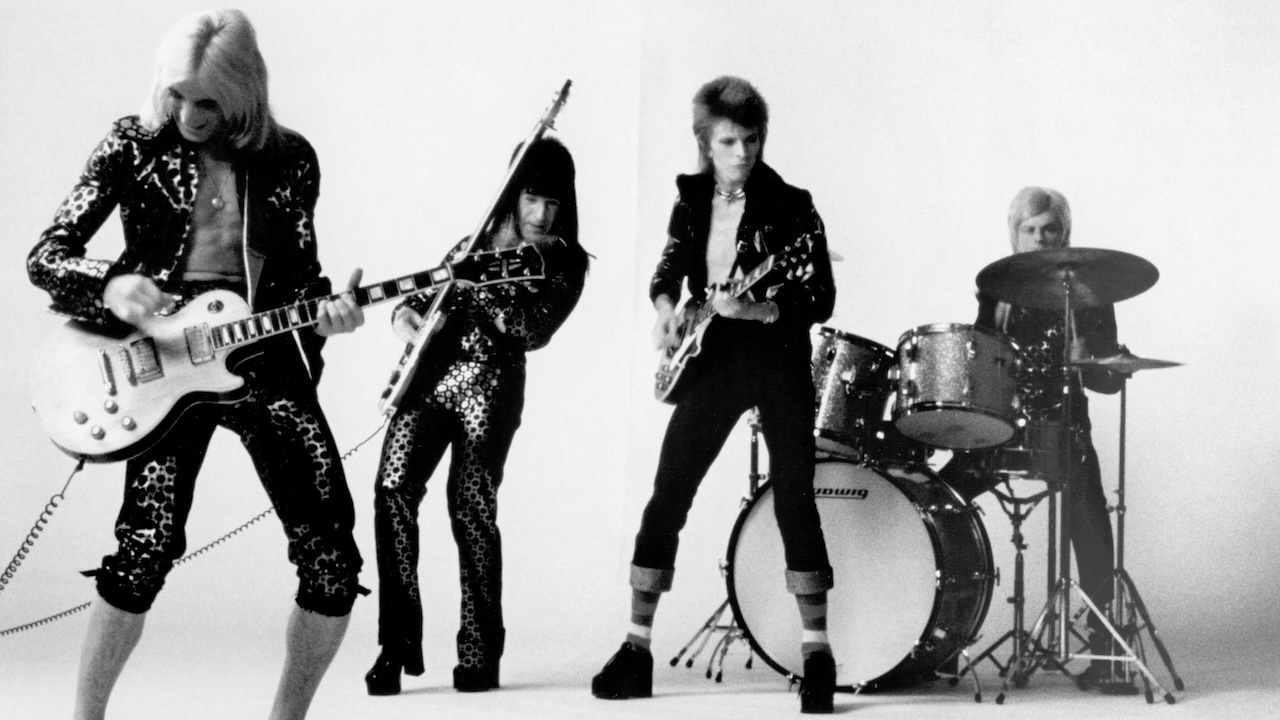“I used a Gibson EB-3 through my time with David, trying to get the same bass sound Andy Fraser got with Free”: How the late, great Trevor Bolder applied melodic flair to anchor this irresistible 12/8 rocker from David Bowie’s Aladdin Sane

On May 21, 2013, the bass world lost one if its unsung stylists in Trevor Bolder, who succumbed to pancreatic cancer at the age of 62. Born June 9, 1950, in Hull, England, Bolder grew up in a musical household, taking up cornet and trombone in school and picking up bass guitar in his early teens.
Bolder teamed up with Mick Ronson shortly after the guitarist began backing David Bowie as a member of the Hype in 1970, and by 1971, he had replaced longtime Bowie collaborator Tony Visconti on bass.
Bolder, Ronson, and drummer Woody Woodmansey would form the core of the Bowie backing band known as the Spiders From Mars, appearing on Hunky Dory, The Rise and Fall of Ziggy Stardust and the Spiders from Mars, and Aladdin Sane.
“I used mainly a Gibson EB-3 through my time with David,” Bolder told Bass Player. “Trying to get the big sound Andy Fraser got on it, with Free.
“A lot of the basslines had to come off the top of my head. We'd get maybe two run-throughs and then we did the take. We had a bit of rehearsal time for Ziggy Stardust, but for much of Aladdin Sane, it was the same on-the-spot situation.”
As Aladdin Sane producer Ken Scott recounts in his memoir, Abbey Road To Ziggy Stardust, “We started recording tracks, some of which would eventually become part of Aladdin Sane, in New York City at RCA Studios, amid a North American tour.
“I loved Drive-In Saturday. It feels more American to me than anything else on the album, probably as a result of David's time in the States.”
Get The Pick Newsletter
All the latest guitar news, interviews, lessons, reviews, deals and more, direct to your inbox!
Released in April 1973 as the second single from Aladdin Sane (following The Jean Genie in November 1972), Drive-In Saturday does indeed bear the hallmark of 1950s American doo-wop, with its 12/8 rhythmic lilt and ‘doo-doo-wah’ backing vocal tracks. But on bass, Bolder takes a decidedly bolder tack.
After calmly setting the pace in the 2-bar intro, Bolder wastes no time asserting his presence once the verse begins, juxtaposing held notes at the front of the bar with rapid-fire 16ths toward the back.
As the I-VI-V progression of the verse gives way to the IV chord at the start of the pre-chorus, Bolder begins to reach into the higher registers, building intensity at 00:50 with a crescendo into the key change at the chorus.

Here, Bolder seamlessly injects further rhythmic and melodic flair into his bassline with a syncopated run at 01:11, and by ditching the root in favor of the D chord's 3rd at 01:15.
By contrasting the density of his fills with big, held notes in the descending line at 01:24, Bolder gives his subhooks just the right amount of breathing room.
On Drive-In Saturday, Trevor Bolder proves himself every bit the master as John Deacon with Queen, or Dee Murray with Elton John, two contemporaries who also expertly infused melodic runs and rhythmic nuance into settings that would overpower a lesser player.
Bolder and Ronson went on to contribute to Bowie's 1973 collection of cover songs, Pin Ups, but by that time relations between the singer and his band had soured. Bolder recorded two albums with Ronson before replacing John Wetton in Uriah Heep in 1976, remaining with the band through 2013.
While we mourn the loss of a great talent, we celebrate the lasting legacy of “Weird,” as Bowie famously referred to Bolder in Ziggy Stardust.
Weird? Perhaps. Wonderful? Without a doubt.
- Aladdin Sane is out now via Rhino/Parlophone.
You must confirm your public display name before commenting
Please logout and then login again, you will then be prompted to enter your display name.

